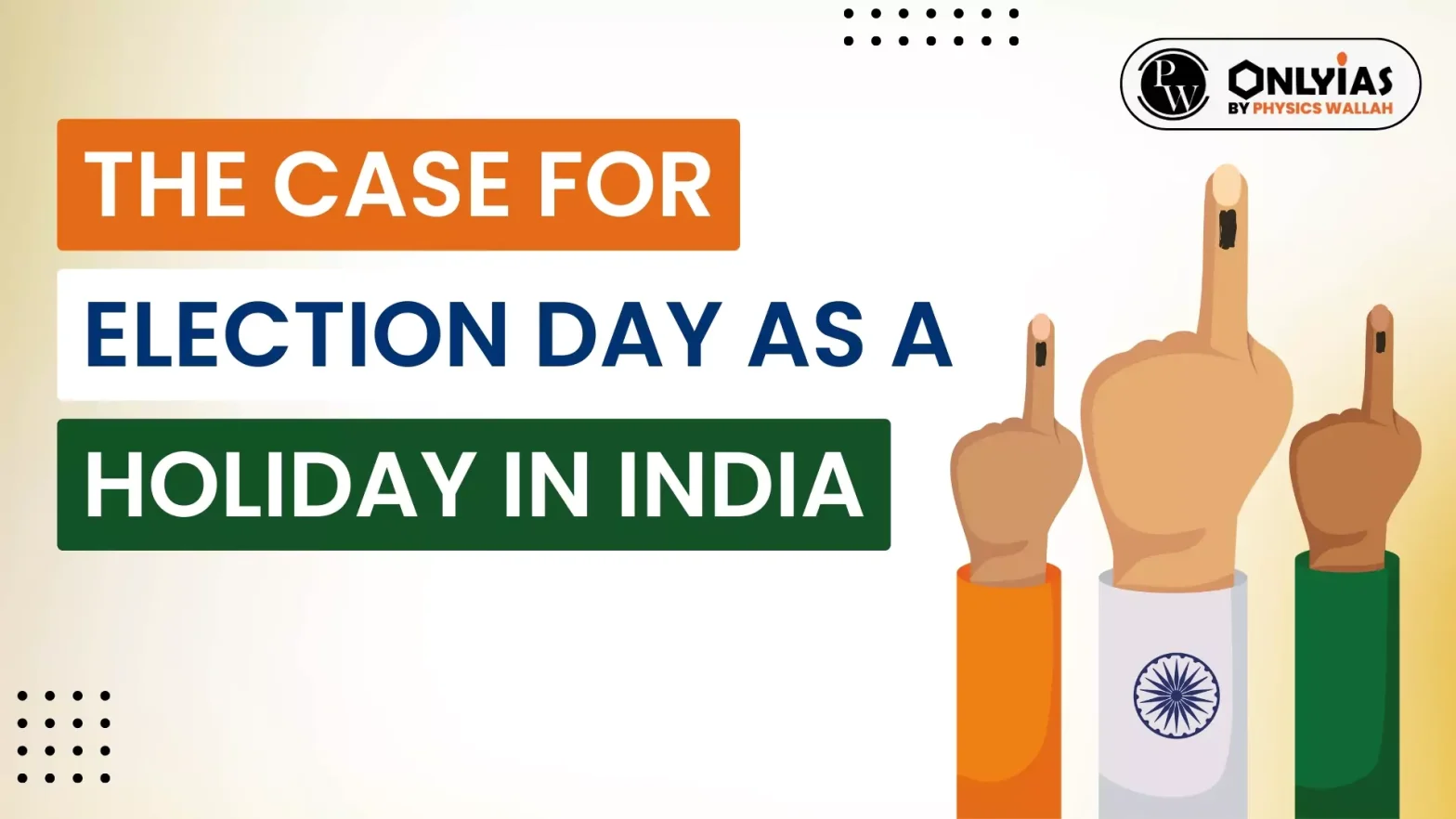Context
Recent discussions have brought to light an intriguing debate surrounding the obligation of employers, particularly Small and Medium-sized Enterprises (SMEs), to declare a holiday on election day.
Debate over Voting
- Constitutional Right: The right to vote in India is not just a privilege but a constitutional right outlined in the Constitution.
- Debate Over Constitutional Principles: Some argue for this practice, citing constitutional principles, while others question its necessity and potential infringement on individual liberties.
Enroll now for UPSC Online Course
Global Practices
- Encouraging Voter Participation through Holidays: Many democracies worldwide provide a holiday on election day to facilitate voter participation.
- Some countries like Australia mandate voting and provide a holiday, while others, like the United States, don’t.
- Voting Practice in USA: Election day in the U.S. isn’t designated as a national holiday, so voters typically schedule their voting around their daily routines. While some states provide paid time off for voting, there’s no federal mandate for this practice.
- A Princeton Study: A study from Princeton University suggests that having an election holiday doesn’t significantly increase voter turnout.
Equilibrium Between Civic Duties and Individual Liberties
- Promoting Voting Rights: Advocates argue that the Constitution upholds voting as a right, hence employers should grant a day off.
- Business organizations like FICCI, ASSOCHAM, and NASSCOM are expected to align with societal goals.
- Balancing Employer Autonomy and Voting Rights: The counterargument emphasises individual freedom and the principles of a free market economy.
- Mandating a holiday may be seen as an infringement on employer autonomy, especially for smaller businesses.
Way Forward
- Suggestions For India: The proposal to link paid leave to proof of voting suggests a middle ground.
- This incentivizes voter turnout while allowing employer discretion, addressing both civic engagement and business concerns.
- Civic Engagement: The issue transcends legalities and delves into democracy’s essence, fostering civic engagement while respecting diverse needs.
- Innovative Voting Solutions: Policymakers should explore innovative solutions to encourage voting without burdening employers.
- Future technological advancements may enable voting from home without undue influence.
Enroll now for UPSC Online Classes
Conclusion
The discussion surrounding employer responsibilities on election day is intricate, encompassing democracy, personal liberties, and economic factors. Maintaining equilibrium between civic duties and corporate independence is crucial to uphold India’s democratic principles.
![]() 16 May 2024
16 May 2024
